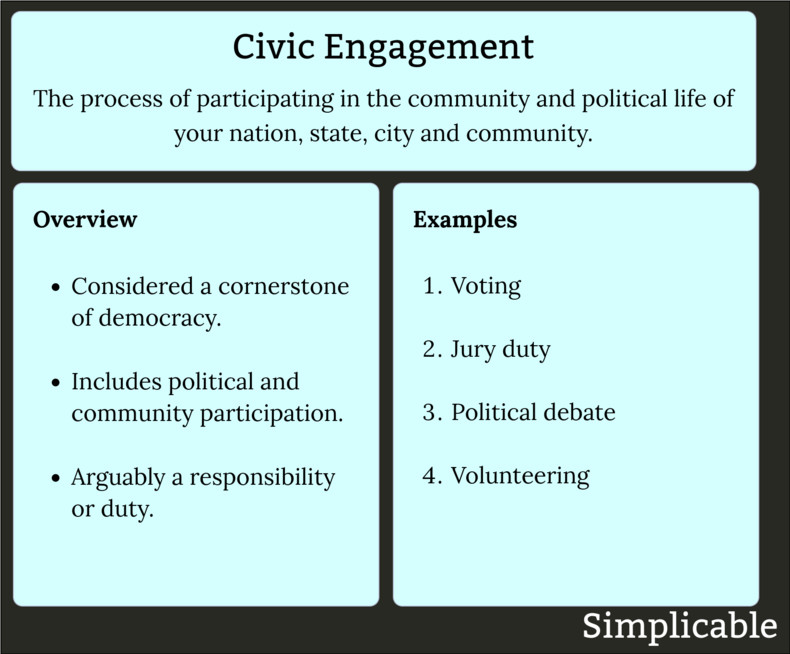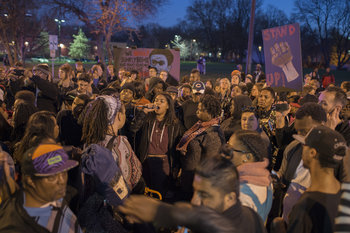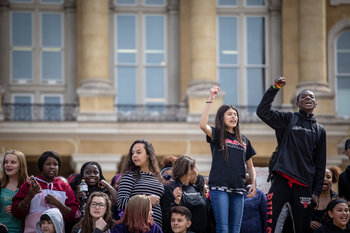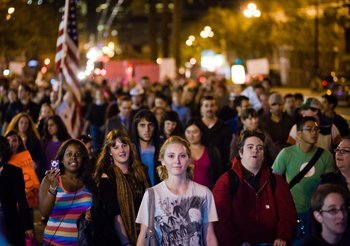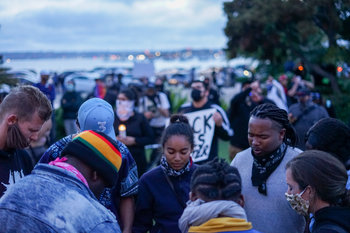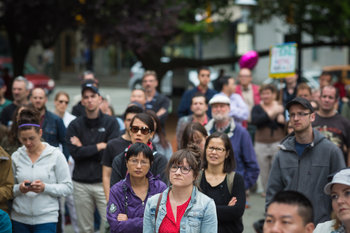|
| |
Civic engagement is the process of participating in the community and political life of your city and nation. This is viewed as a cornerstone of democracy whereby democracy fades where people do not participate. As such, it is viewed as a type of unofficial duty whereby civic engagement is arguably a responsibility of citizenship. The following are common examples of civic engagement.
Attending school board meetings | Community gardening | Contacting your elected representatives | Debate | Donating blood | Engaging in political dialog | Environmental clean ups | Giving to good causes | Joining local committees | Letter writing campaigns | Participating in local events | Participating in student government | Peaceful protests | Petitioning | Political activism | Public demonstrations | Running for public office | Serving on a jury | Supporting community organizations | Supporting political candidates | Town hall meetings | Volunteering | Serving as a poll worker | Voter registration drives | Voting | Joining local organizations | Joining local sports teams |
OverviewCivic engagement is a cornerstone of democracy that involves political and community participation where you live.Next: Civic Duty
If you enjoyed this page, please consider bookmarking Simplicable.
ReferencesGalston, William A. "Civic knowledge, civic education, and civic engagement: A summary of recent research." International Journal of Public Administration 30.6-7 (2007): 623-642.Theiss-Morse, Elizabeth, and John R. Hibbing. "Citizenship and civic engagement." Annu. Rev. Polit. Sci. 8 (2005): 227-249.Adler, Richard P., and Judy Goggin. "What do we mean by “civic engagement”?." Journal of transformative education 3.3 (2005): 236-253.
© 2010-2023 Simplicable. All Rights Reserved. Reproduction of materials found on this site, in any form, without explicit permission is prohibited.
View credits & copyrights or citation information for this page.
|

